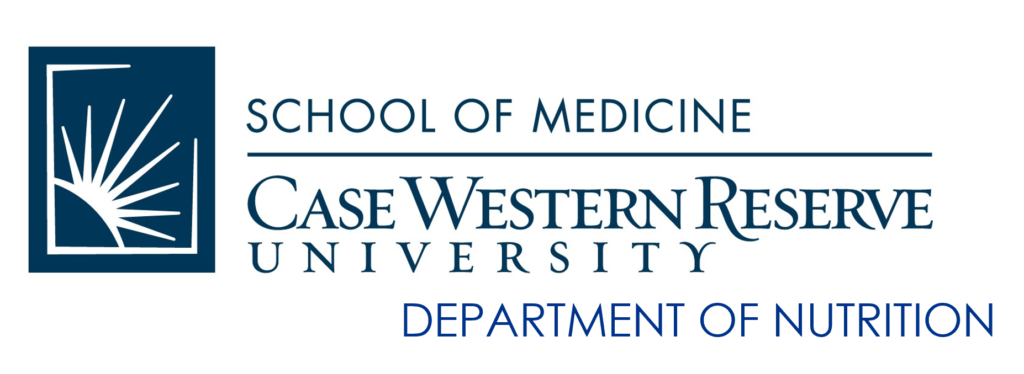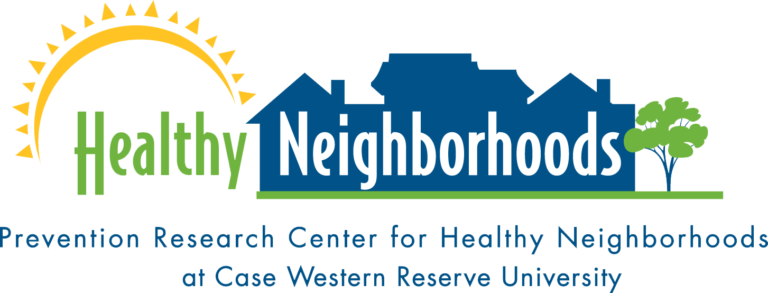Nourishing Beginnings is a collaborative community program and research study that investigates the impact of nutritional resources and their effects on expecting parents and their babies during pregnancy and postpartum.
Nourishing Beginning is a countywide program that links Medicaid-eligible pregnant individuals with community health workers who assess and address social needs of their clients, and for those eligible, tests two different models of food access (food delivery and financial assistance with personalized navigation). The central logic is that if pregnant women have reliable, trusted and culturally relevant support that includes tools to build self-efficacy to support health with nutritious foods, as well as support for other social needs during pregnancy, they will experience less stress, have healthier behaviors, and see improved health outcomes for themselves and their child.
The mission of this project is to support pregnant people by connecting them to fresh, nutritious foods, during pregnancy and postpartum.
Co-Principal Investigators
Elaine Borawski, PhD, Case Western Reserve University
Alissa Glenn, MPPM, Greater Cleveland Food Bank
Christopher Mundorf, PhD, MPH, Better Health Partnership
Team and Community Partners
Nourishing Beginnings is a collaborative study that relies on all of the following partners
NOURISHING BEGINNINGS WOULD NOT BE POSSIBLE WITHOUT SUPPORT FROM OUR FUNDERS



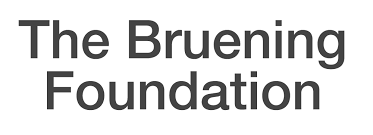

Community of Focus
Medicaid eligible pregnant individuals in Cuyahoga County, Ohio
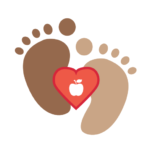
Why is it Important for the Community?
- For over 30 years, Cuyahoga County, Ohio has had one of the highest infant mortality rates in the nation, equal to those in developing countries, with prematurity as the largest contributing factor.
- Food insecurity has been shown to be a key factor of poor maternal mental, physical and behavioral health, as well as pregnancy and birth outcomes, including prematurity. Babies born to food insecure moms are twice as likely to be born premature and food insecurity has also been linked to prematurity through the negative mental health and stress.
- This research project offers parent extra support during and after pregnancy with the mission to reduce food insecurity and improve birth outcomes in Cuyahoga County.
Project Activities and Methods:
Study Aims
The aims of this study are as follows:
- To conduct preliminary analyses of the changes in the intervention targets and long term maternal and infant outcomes among the two intervention arms.
- Simultaneously engage in rigorous process evaluation of the implementation of the intervention to refine implementation.
Conceptual Model
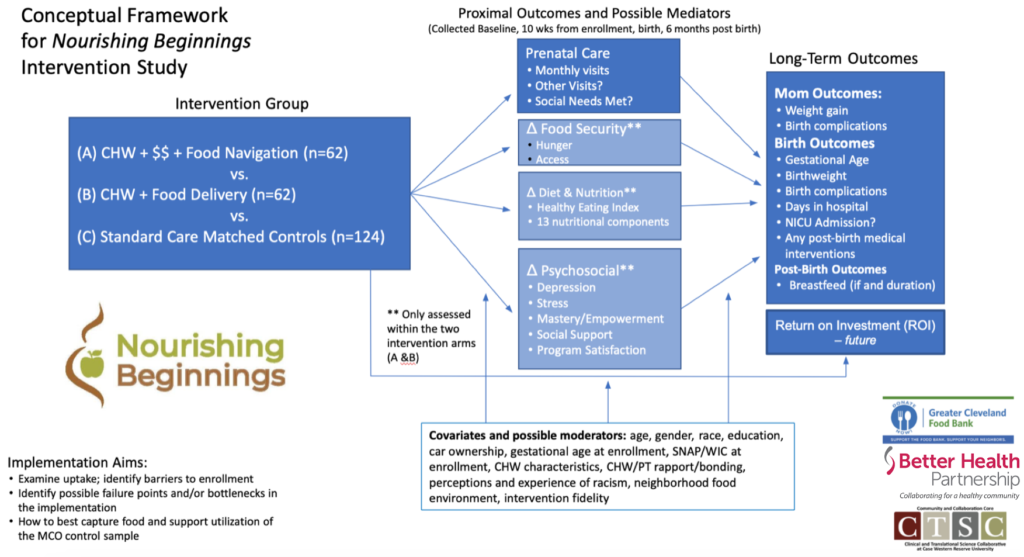
Participation in the Project:
- The Nourishing Beginnings project’s goal is to identify the most effective easy to support people during and after their pregnancies.
- Participants will be asked a series of questions to help researchers understand the impact of the program.
Enrollment and Evaluation:
- Once enrolled in the Better Health Pathways HUB, participants will be randomized into one of two study arms, as discussed below.
- During enrollment in this project, and throughout the 12-18 months study afterwards, participants will be asked question about: Health, Diet, Lifestyle, as well as pregnancy and delivery information.
Intervention Arms:
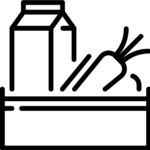

Intervention Arm 1: Food Box Delivery
Participants in this study group receive boxed food items delivery every other week from the Greater Cleveland Food Bank containing fresh, quality ingredients to make healthy meals at home:
- Foods in the box are unprocessed, highly nutritous, and customized to fit the pregnant person’s prefrences.
- Boxes are sized to feed all members of the household.
- Participants will provide monthly feedback on the food boxes, which can be adjusted.
The goal of this intervention is to reduce the stress of shopping and food selection as well as improve nutrition and self-efficacy with food.
Intervention Arm 2: Financial Assistance and Healthy Food Navigation
Participant in this group receive:
- A cash card for groceries which is reloaded every other week.
- Access to a helpful web-based food resource tool.
- Training from community health workers (CHW) about how to find healthy affordable foods near their home.
- CHW’s will use FreshFinder as a tool to help clients in this process.
The goal of this intervention is to provide additional support to purchase healthy foods during pregnancy, reduce the stress of locating healthy food retail and other food outlets, as well as improve nutrition and self-efficacy with food.
Participants in both intervention arms will be offered resources to help them with their food needs including:
- Assistance with kitchen items such as pots, pans, and cooking utensils
- Access to personalized and easy-to-understand recipes that reflect their dietary needs during pregnancy and after delivery
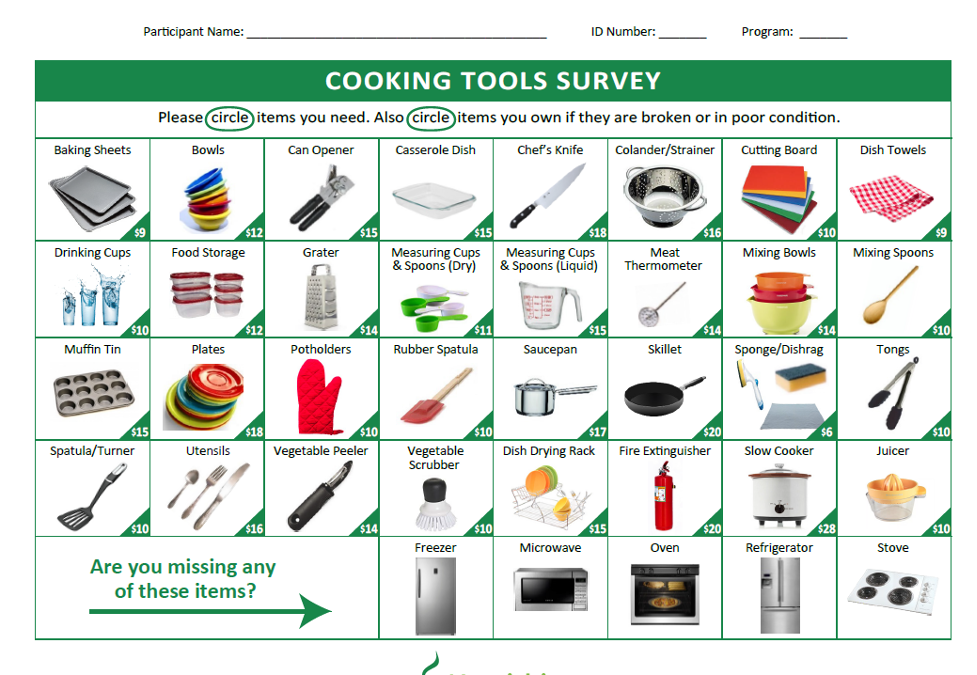
Participants in both intervention arms will choose mom and baby items up to a $50 value that will be delivered to them at or near the time they deliver their baby:
- The figure to the right shows the items participates can choose from
- Items include things that can be for mom (Breast therapy pads, nipple cream, female ice pack and perineal bottle set) or baby (onesies, swaddles, burp cloths, etc)

Control Group:
A traditional control group is not available in this study as we were not willing to withhold needed services to the pregnant participants enrolled in the study. Therefore, to parse out the effects of the different components of the intervention without enlisting a simultaneous control group, two distinct sources of secondary data will be utilized.
- The first set of controls will be drawn from a partner MCO (CareSource). They will provide a de-identified matched control sample of Medicaid enrolled pregnant women who did not receive CHW services, food delivery, or financial food incentives.
- Second, a retrospective sample of participants in the HUB prior to the beginning of this study will be used to exam the impact of the CHW alone without the added food insecurity intervention.
For more specifics about the Nourishing Beginnings Study;
Published in Contemporary Clinical Trials, Volume 133, October 2023, 107310
Questions?
Case Western Reserve University
Laura Fernandez
lxf230@case.edu
Samantha Bentley
sxb1213@case.edu
Greater Cleveland Food Bank
Alissa Glenn
aglenn@clevelandfoodbank.org
440.785.0379
Better Health Partnership Pathways HUB Referral Coordination
Marie Velez
mvelez@metrohealth.org
216.778.7525
For Participants Rights Questions
216.368.083




